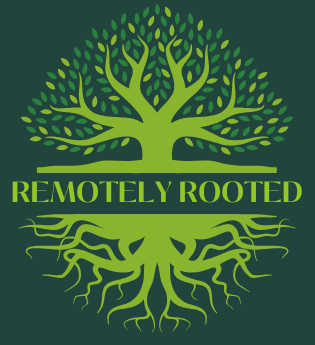
Defining Off-Grid Living
Off-grid living is a lifestyle choice that emphasizes complete independence from public utilities and services. It involves relying on self-sufficient systems for energy, water, and waste management. The core principles of off-grid living revolve around sustainability, autonomy, and resourcefulness. This method of living is distinct from other alternative housing options such as tiny homes or eco-villages, as it prioritizes total independence over shared resources or community infrastructure.
At its essence, off-grid living encourages individuals to harness natural resources to meet their basic needs. For energy production, most off-grid homes utilize solar panels, wind turbines, or hydropower systems, allowing residents to generate electricity without dependence on external sources. Water collection methods, such as rainwater harvesting or well drilling, are also common practices among off-grid enthusiasts. Additionally, waste management typically involves composting and recycling to minimize environmental impact while ensuring a healthier living space.
The contrast between off-grid living and other alternative housing forms lies in the degree of self-reliance. Tiny homes, while minimizing space and consumption, often still connect to municipal services such as water, electricity, and sewage. Eco-villages promote sustainable living through shared resources and communal projects, blurring the boundaries of individual independence. In contrast, off-grid living necessitates that individuals actively manage all aspects of their daily lives, cultivating a deeper connection to their environment.
Ultimately, off-grid living represents a commitment to embracing self-sufficiency, fostering resilience, and utilizing personal ingenuity to create sustainable lifestyles. As more individuals seek to break free from societal norms and cultivate their independence, understanding the intricacies of off-grid living becomes increasingly vital for those pursuing this path.
Legal Considerations and Zoning Requirements
Engaging in off-grid living entails several legal considerations and zoning requirements that aspiring homeowners must carefully navigate. Understanding local land use regulations is essential, as these laws determine how properties can be utilized, including restrictions on the installation of alternative energy systems like solar panels or wind turbines. Local zoning regulations often specify the type of structures permitted, the size and height limitations, and the appropriate land use to maintain compatibility with surrounding properties.
Additionally, building codes play a crucial role in off-grid living. These codes set safety and structural standards for construction, ensuring that homes are built to withstand local environmental conditions. Homeowners must be aware of any permits required for building, as failing to secure necessary approvals can result in fines or the forced removal of unauthorized structures. Consulting local building departments is advisable to understand specific requirements relevant to off-grid construction.
Property rights also significantly influence off-grid living, particularly regarding water rights, mineral rights, and access to resources on or surrounding the land. Prospective off-grid homeowners should verify these rights by examining title deeds and conducting research on state-specific laws governing natural resources. Understanding these rights will prevent future legal disputes and help homeowners utilize their property effectively.
While navigating through the intricate legal landscape, engaging with local governmental agencies is vital. This can involve attending public meetings, reaching out for advice, and staying informed about any upcoming changes to laws or regulations. Moreover, online resources and community forums may provide valuable insights and support. Overall, careful research and proactive communication will enable individuals to comply with relevant laws, facilitating a successful transition to off-grid living.
Costs of Going Off-Grid: Initial Investment vs. Long-Term Savings
Transitioning to an off-grid lifestyle represents a significant shift in how individuals manage energy, resources, and living space. The financial implications of this transition are paramount, with initial investments often daunting but carrying the potential for substantial long-term savings. The primary costs associated with going off-grid include purchasing land, building sustainable structures, and installing renewable energy systems such as solar panels or wind turbines.
Purchasing suitable land can vary greatly in price, depending on location and size. Conducting thorough research on available plots is essential, as this cost forms the bedrock of your off-grid lifestyle. Following land acquisition, building sustainable homes may require investing in carefully selected materials that provide durability and energy efficiency. The construction phase can be one of the largest expenditures, particularly if opting for custom designs or eco-friendly features.
In addition to land and construction costs, setting up renewable energy systems represents a crucial component of the initial investment. Solar energy systems and wind turbines may require up-front capital, but they significantly reduce dependency on traditional energy sources. Although these setups can appear financially burdensome initially, the long-term savings on utility bills can greatly outweigh these costs. Many homeowners report drastic reductions in their monthly energy expenses, which might lead to a return on investment over time.
Moreover, the potential for increased property value cannot be overlooked. As sustainable living gains popularity, properties equipped with energy-efficient systems, water conservation methods, and off-grid capabilities often attract premium prices. Consequently, while the initial cash outlay may seem substantial, the prospect of long-term savings through reduced expenses and increased property value offers a balanced perspective on the financial commitment of embracing an off-grid lifestyle.
Debunking Common Misconceptions About Off-Grid Living
Off-grid living is often shrouded in misconceptions that can deter individuals from considering this sustainable lifestyle choice. One prevalent myth is the belief that living off the grid equates to extreme isolation and a complete removal from society. In reality, many off-grid dwellers integrate themselves into vibrant communities, forming networks that foster support and collaboration. These communities often prioritize self-sufficiency while maintaining social connections, allowing residents to engage in social activities and share resources.
Another common misconception is that off-grid living involves uncomfortable living conditions and a lack of modern conveniences. Contrary to this belief, technological advancements have transformed the off-grid experience. Many individuals now utilize solar panels, wind turbines, and other renewable energy sources to power their homes, offering the same comforts as conventional living spaces. Furthermore, modern water filtration systems and sustainable farming techniques enable off-grid inhabitants to access clean water and food efficiently, enhancing their quality of life.
Additionally, some may assume that transitioning to an off-grid lifestyle requires significant sacrifices and a total commitment to self-sufficiency. While off-grid living does promote independence, it also encourages adaptability and flexibility. Many individuals choose to start small, gradually integrating off-grid practices, such as rainwater harvesting or growing their own vegetables, alongside their existing lifestyle. This approach allows newcomers to evaluate their dedication to off-grid principles without feeling overwhelmed by drastic changes.
Ultimately, embracing off-grid living does not mean abandoning comfort or social interaction. By dispelling these misconceptions, individuals can better appreciate the diversity and adaptability of off-grid lifestyles, recognizing that they can still maintain connections and modern amenities while pursuing sustainability. Through informed choices and a willingness to learn, prospective off-grid dwellers can embark on a fulfilling journey that aligns with their values and aspirations.
